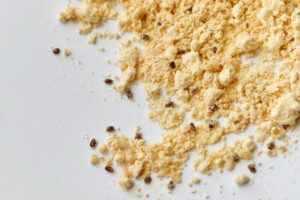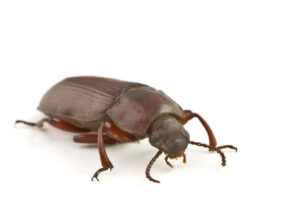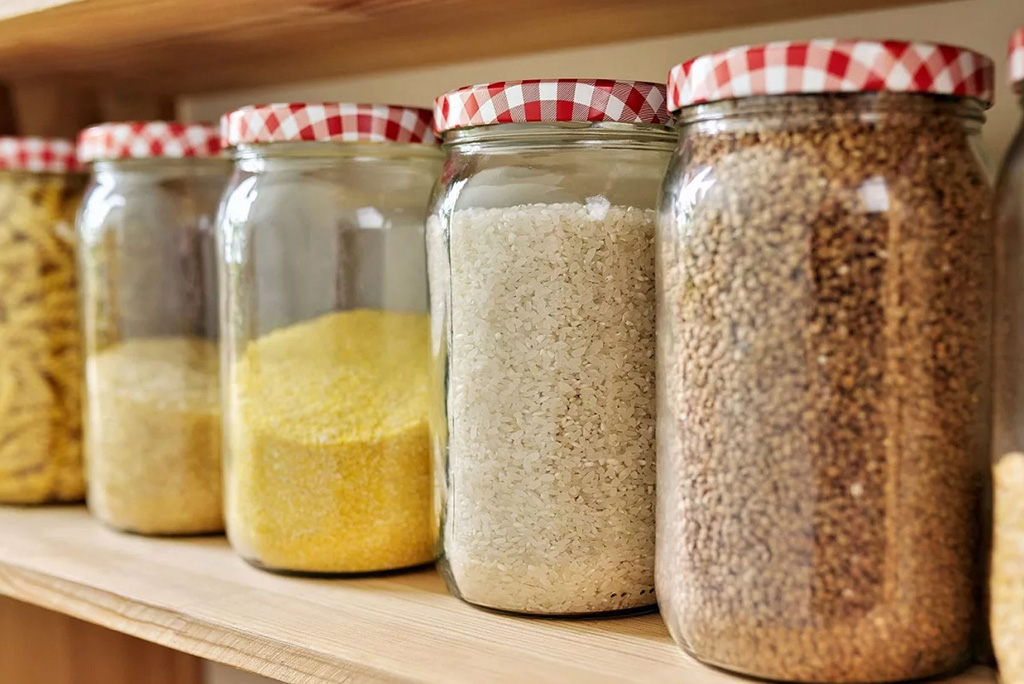It is essential to have a well-organized and well-maintained pantry at home. But there’s nothing worse than discovering an infestation of flour beetles in your carefully stored food and products. These destructive pests can wreak havoc on your pantry staples, leading to food waste and potential health risks.
Today, we are here to guide you through the steps to ensure that your pantry remains free from flour beetles in the long term.
What Are Flour Beetles And Where Do They Live?
Before diving into prevention and control strategies, let’s quickly talk about what the flour beetles are and where they thrive:
- There are two common types of flour beetles that can invade pantries – the Confused Flour Beetle (Tribolium Confusum) and the Red Flour Beetle (Tribolium Castaneum). Both types of flour beetles are small, reddish-brown or dark brown, about 1/8 inch in length. They are similar in appearance and habits, so it’s important to identify them accurately.
- Flour beetles thrive in dry, dark, and undisturbed places, which makes pantries and food storage areas ideal homes for them.
- They are often found in flour, cereal, grains, rice, pasta, and other dry food products, and even in pet food.
- These pests can reproduce rapidly, with females laying hundreds of eggs in their lifetime, leading to a rapid population explosion if it’s not eliminated on time.
Why Is It Important To Keep Flour Beetles Away From Your Pantry?
Flour beetles may seem small and harmless at first glance, but you might be surprised that the consequences of an infestation can be quite significant. Here are some reasons why you must keep your pantry free from these harmful insects:
Food contamination:
Flour beetles can contaminate your stored dry food products with their feces and shed skin, bacteria, and fungi. This makes the food inedible and causes it to be wasted. Besides, it results in financial losses and contributes to food shortage issues at home.
Health concerns:
Consuming food that’s contaminated by flour beetles can lead to various health problems, including digestive issues, food poisoning, and allergies.
Economic damage:
Flour beetles don’t just target food – they can also infest the packaging, creating holes and compromising the integrity of bags and containers. This can lead to additional expenses for replacing damaged containers.
Potential of future infestations:
Flour beetles are prolific breeders. If you allow an infestation to go unchecked, it can lead to a more widespread problem, one that’s more difficult and expensive to eradicate.

Typical Signs Of An Infestation
Early detection is crucial in managing a flour beetle infestation. Here are some clear signs to watch out for:
Tiny beetles:
Flour beetles are really small insects and you might spot them crawling on the surfaces of your pantry shelves, walls, or food containers.
Larvae:
Look for tiny, white, worm-like larvae in your stored food as it’s a sure sign that an infestation is in progress.
Webbing:
Flour beetles form silky webbing in their feeding areas, which you can spot on the surface of food products.
Piles of feces:
The beetles leave behind small, brownish-black droppings that can accumulate on your pantry shelves and food.
Damaged packaging:
Check for holes and damage in food packaging as this indicates that the beetles have been feeding and breeding inside.

How To Control And Prevent Flour Beetles From Infesting Your Pantry?
Now that you understand the importance of keeping your pantry beetle-free and know how to spot an infestation, let’s discuss key proactive measures you should take to prevent flour beetles from invading your food storage areas:
Proper storage techniques:
- Store dry food goods in airtight containers made of glass, plastic, or metal. This prevents beetles from accessing and infesting your food.
- Even before purchasing food items, inspect the packaging for any signs of damage or holes. Avoid buying products with damaged packaging.
- Use the “first in, first out” method when storing food in your pantry. Rotating your stock ensures that older items get used first and reduces the likelihood of pest infestations developing over time.
Temperature control:
- Maintain cool temperatures in your food storage areas. Flour beetles thrive in warm environments so keeping your pantry cool, ideally below 75°F, can deter infestations.
- Freeze infested items. If you suspect an infestation in a food product, you can possibly freeze it for a few days to kill both beetles and their eggs.
Regular cleaning:
- Make sure to keep your pantry clean and free of crumbs and spilled food as this can attract flour beetles and provide them with a great food source. Cleaning prevents the buildup of food particles, therefore, don’t forget about regularly vacuuming and wiping your pantry shelves.
- Frequency of cleaning – Aim to clean your pantry thoroughly at least once a month. Regular cleaning reduces the chances of infestations going unnoticed.
- Proper cleaning techniques – When cleaning your pantry, remove all food items and clean the shelves, walls, and all the corners. Use a vacuum cleaner to remove any hidden food particles.
Inspection of food products:
- When you bring new food products into your pantry, inspect them for any signs of infestation before storing them.
- Inspection for signs of infestation: During your monthly cleanings, inspect all stored food for signs of flour beetles. Dispose of any contaminated items immediately.
Seal entry points:
- Inspect your pantry for cracks and gaps in the walls, ceiling, or shelving. It’s necessary to seal these entry points if you want to prevent beetles, or any other pests, from entering.
Dispose of infested items
- Act promptly – If you discover any infested food items, get rid of the whole content immediately. Place it in sealed plastic bags and dispose of it to prevent further spread.
Call a professional pest control service
Finally, if in doubt, seek professional help. If you suspect a flour beetle infestation in your home that’s beyond your control, don’t hesitate to contact a professional pest control company like Peachtree Pest Control.
Our team of experts offers pest infestation removal services in Metro Atlanta, GA. They have the knowledge and tools to tackle any pest problem effectively, so don’t hesitate to contact us today!
